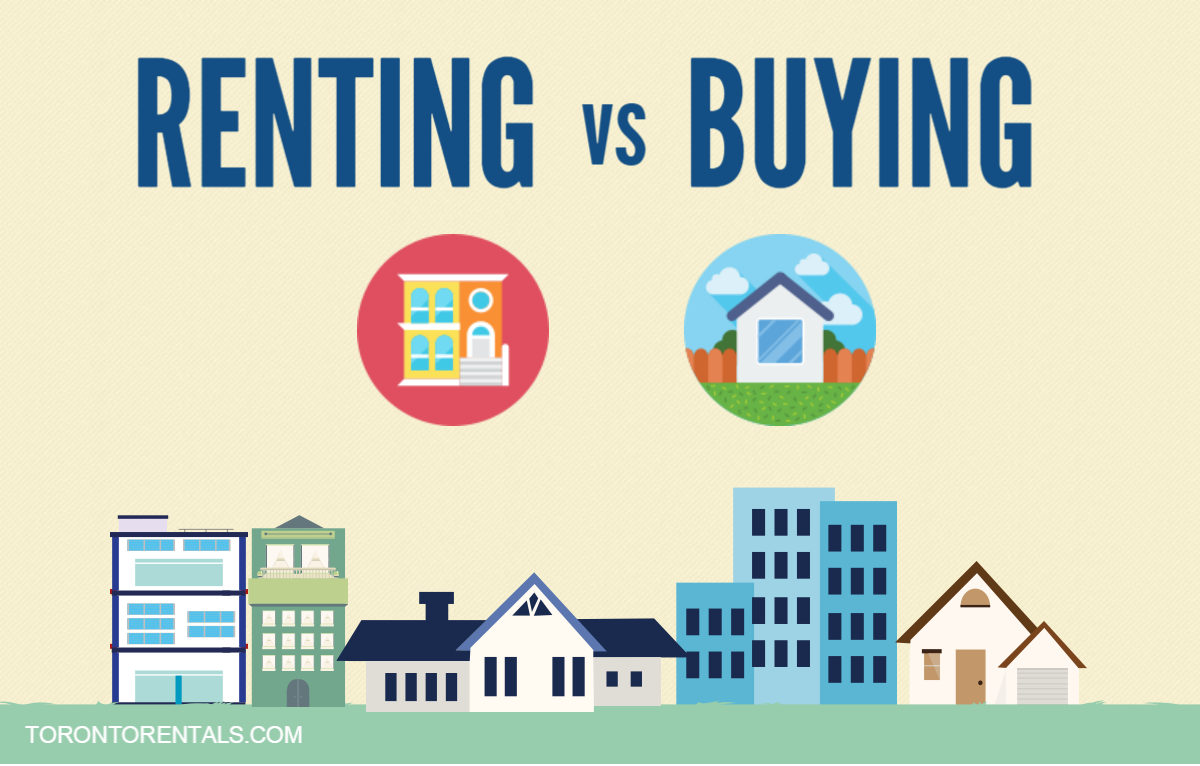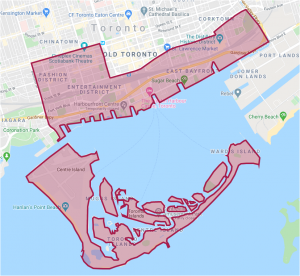For as long as we can remember, people have been debating whether renting or buying is better when it comes to your home. Search the issue and you’ll find dozens of articles with rent vs. mortgage calculators and a ton of opinions on which option is more economically viable in the long- and short-term, and which represents the smarter choice overall.
Obviously, we’re a bit biased towards renting because renting in Toronto is awesome! In such a massively inflated real estate market as Toronto, renting makes a ton of sense. That said, for some people, renting isn’t ideal – often families, who plan to stay in the same home for a decade or more, will come out ahead by buying.
But for most of us, including the young professionals generation that wants choice, flexibility, freedom and a killer location for their homes, renting wins pretty much every time.
There are a few major points people forget when they compare renting vs. buying:
Flexibility
Renting gives you the opportunity to move once a year if you want, live in Toronto neighbourhoods that wouldn’t be within your financial reach if you were buying and to pick from dozens of options a week, as opposed to just a few homes for sale that are within your price range.
That ability to move every year is gold. Ever heard of buyer’s remorse? If you’ve bought a home, buyer’s remorse isn’t an option: you’re stuck in that place for years. Contrarily, if you move into a rental that loses its sheen within a couple of weeks, the longest you’ll have to stick around is a year, but subletting might be a possibility, as well.
Down payment
Um, the truth is that most of us don’t have $100,000 to throw around. Without a huge chunk of change like that, how do you expect to buy a house in Toronto? Most mortgage lenders require a down payment of 20%, and with the average price of a house in Toronto proper topping $600,000, you’re looking at a $120,000 down payment. That’s insane!
“The average sale price of a detached house in the City of Toronto remained firmly above $1 million in August, at $1.017 million, up 12.9 per cent year over year, despite an 8.5 per cent decrease in sales.”
Source: Toronto Star
Meanwhile, renters have it easy. Paying just $2,000 per month is a far easier pill to swallow than the down payment option. The other thing to consider is that if you do happen to have $100,000 laying around, renting gives you the opportunity to rent and invest your savings in other options, such as stocks and mutual funds that can provide an annual return that’s often the same as your return on your property would be. Plus, you get the added flexibility mentioned above, and financial flexibility month to month to have a little fun in your life.
Repairs and essential costs
Sure, renting represents a monthly cost, but so does owning a home, and sometimes, the difference might not be that huge.
For example, owning a home usually includes having to pay monthly condo fees or HOA fees. For some buildings, these fees can be significant – around $400-$600 per month! Plus, there are other costs to owning a home that many don’t consider off the bat, such as repairs to plumbing and electricity, taxes, improvements like paint, flooring and hardware, and insurance.
Then, there are the unlucky few who buy a house and come across major repairs or assessments. When things go wrong, you could be hit with a bill for $10,000 for a new roof if you own a house, or $2,500 for a new roof if you own a condo.
For renters, these costs are a non-issue – your landlord or property manager gets to foot the bill!
Investments
As a long-term investment, buying usually pays off. Most homeowners in Toronto will make some degree of a return after three to five years – even after factoring in huge realtor fees. However, such a major investment in real estate can leave your money tied up, leaving you with a one-item investment portfolio.
The smaller financial burden that renters face allow them to invest in other sources of passive income, like stocks, mutual funds and such.
If the average price of a home in Toronto increases 10% per year, and the average return on your stocks is 10% per year, that represents a financial wash, depending on whether you consider monthly rent a burden or the enormous initial output a bigger pain.
Either way, you’re playing a game of risk where buying may not bring you the return you expected, but other investments similarly aren’t a sure thing.
What do you think: Is it better to rent or buy?




